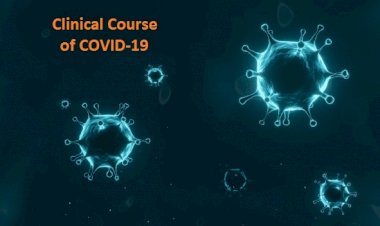10 Vitamin D Benefits You Should Know
Vitamin D is essential for our body for several reasons. Learn the Benefits, Sources, Deficiency Symptoms, Sources, Dosage and symptoms of excessive vitamin D in the human body.

Vitamin D is essential for several reasons, including maintaining healthy bones and teeth. It may also protect against a range of diseases and conditions, such as type 1 diabetes.
Despite its name, vitamin D is not a vitamin, but a prohormone, or precursor of a hormone.
Vitamins are nutrients that the body cannot create, and so a person must consume them in the diet. However, the body can produce vitamin D.
The human body produces vitamin D as a response to sun exposure. A person can also boost their vitamin D intake through certain foods or supplements.
Vitamin D has multiple roles in the body. It assists in:
- Promoting healthy bones and teeth
- Supporting immune, brain, and nervous system health
- Regulating insulin levels and supporting diabetes management
- Supporting lung function and cardiovascular health
- Influencing the expression of genes involved in cancer development
Symptoms of vitamin D deficiency may include:
- Regular sickness or infection
- Fatigue
- Bone and back pain
- Low mood
- Impaired wound healing
- Hair loss
- Muscle pain
If Vitamin D deficiency continues for long periods, it may result in complications Trusted Source, such as:
- Cardiovascular conditions
- Autoimmune problems
- Neurological diseases
- Infections
- Pregnancy complications
- Certain cancers, especially breast, prostate, and colon.
Sources of Vitamin D
Getting sufficient sunlight is the best way to help the body produce enough vitamin D. Plentiful food sources of vitamin D include:
- Fatty fish, such as salmon, mackerel, and tuna
- Egg yolks
- Cheese
- Beef liver
- Mushrooms
- Fortified milk
- Fortified cereals and juices
Sensible sun exposure on bare skin for 5–10 minutes, 2–3 times per week, allows most people to produce sufficient vitamin D.
Benefits of Vitamin D
There are many benefits to maintaining a proper level of vitamin D. Here are 10 of them.
- Keeps bone and teeth strong. Vitamin D prevents osteoporosis and decreases fractures.
- Boosts immune system. Vitamin D has been found to inhibit the development of destructive autoimmune diseases like lupus, rheumatoid arthritis, and thyroid disease.
- Inhibits certain cancers like breast, colon, and prostate cancer. Vitamin D encourages cell differentiation and also slows down the rate at which cells multiply.
- Reduces inflammation and pain. Vitamin D is a powerful anti-inflammatory agent. Chronic inflammation is a cause of many disease processes, including heart disease and cancer.
- Protects against diabetes. Your pancreas needs sufficient vitamin D in order to make and secrete insulin.
- Helps reduce blood pressure and the risk of hypertension.
- Builds stronger muscles. Older people with high vitamin D levels lose muscle mass more slowly than those with low levels of the vitamin.
- Decreases certain respiratory and food allergies. Vitamin D deficiency has been associated with celiac disease, asthma, and psoriasis.
- Improves energy and mood. Most cells in our bodies have receptors for vitamin D. If a cell is able to access vitamin D readily, then it can perform optimally.
- Decreases the risk of cognitive decline. Vitamin D has been shown to lower the risk of dementia, autism, and Alzheimer’s disease.
Dosage
People can measure vitamin D intake in micrograms (mcg) or international units (IU). One microgram of vitamin D is equal to 40 IU.
The recommended daily intakes of vitamin D are as follows:
- Infants 0–12 months: 400 IU (10 mcg).
- Children 1–18 years: 600 IU (15 mcg).
- Adults up to 70 years: 600 IU (15 mcg).
- Adults over 70 years: 800 IU (20 mcg).
- Pregnant or lactating women: 600 IU (15 mcg).
Risks
The most common symptoms of excessive vitamin D include headache and nausea. However, too much vitamin D can also lead to the following:
- Loss of appetite
- Dry mouth
- A metallic taste
- Vomiting
- Constipation
- Diarrhea
Excess vitamin D usually occurs from taking too many supplements. It is best to get vitamin D from natural sources.
Maintaining a proper vitamin D level is essential to optimizing your health. Make sure you have your vitamin D level checked regularly, do some fun outdoor activities with your family, and take vitamin D supplements as needed. After all, treat your body well, and your body will thank you!

 Admin
Admin 



































Comments (0)